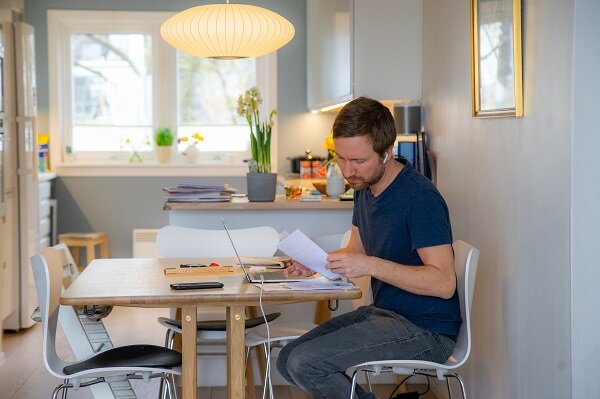8 percent of all people between the ages of 15 and 74 said in July that they had been exposed to financial fraud during the past year. Working alone increases the risk of being cheated.
NorSIS has conducted a survey, which shows that more than 300,000 people have been defrauded in a way that has lead to financial consequences. In the age group 15 to 34 years, the proportion who have had such experiences in the last year is even higher – as much as 15 percent.
The high number has hardly gone under the radar in Norwegian business and industry, where 64 percent more employees have ordered National Security Month’s training package in information security this year, compared with last year: 164,000 registered so far.
The number of companies that have ordered the course has also increased sharply, by 30 percent.
“It is quite obvious that more fraud in circulation and the increased use of home offices has made more companies concerned with giving their employees training in information security”, says senior adviser Trude Talberg-Furulund in NorSIS to NTB.
In the first half of 2020, and especially after the corona measures were implemented, the digital threats that affect most people and small and medium-sized enterprises have increasingly been a fraud, NorSIS states.
More home office
As many as one in three in Norway still work mainly at-home offices, according to a survey by the Norwegian Corona Monitor last week. The use of home offices is on the rise again in September.
Many people sit alone without a social network or an IT employee, someone who can contribute with a reality check, for example, if a slightly suspicious email should appear, where the sender’s logo may not look quite as it usually does, or the wording makes one cautious.
After only days of closure in Norway, the first reports of corona fraud came online. There were emails with false COVID information, offers of vaccines against COVID-19, or invoices for shortages such as hand sanitizer and face masks, in addition to much else that could be tempting to click on in the home quarantine.
Attacks and netiquette
During the first six months of 2020, there were 17 percent more computer attack campaigns than there were for the whole of 2019, according to a report from the American computer security company Crowdstrike. The restructuring of working life because people were sent home to work is mentioned as one of the reasons for the increase.
The figures show that the increase began already when the news about the new coronavirus – and the spread of the virus – started in January. At the same time, people’s awareness of the attacks increased, including in Norway.
The number of users of nettvett.no increased by as much as 71 percent in the period 1 January to 31 May compared with the corresponding period last year. During the same period, NorSIS experienced that it is increasingly the individual, not the computer, who is the number one target for computer attacks.
During the summer holiday months and when the spread of infection was low in Norway, traffic on the internet site decreased, only to increase again when the infection increased at the end of August and in September.
Hectic
October is National Security Month. NorSIS, which is part of the government’s commitment to information security, expects a further increase in the number of participants in online security courses.
With companies’ equipment deployed in home offices, people’s higher threshold for responding to strange inquiries, and no one to consult with, NorSIS believes that the security course this year is extra important, and wants more people involved.
“Knowledgeable employees can more easily see through fraud and deception and help make the company safer”, says Talberg-Furulund.
For Norwegians, it is still, clicking without thinking. In another recent NorSIS survey, a quarter of the 1,500 respondents stated that they never or only occasionally check whether a link or an attachment in an email is safe before opening it.
© NTB Scanpix / #Norway Today





Be the first to comment on "Home office increases the risk of scams – 300,000 Norwegians scammed in one year"